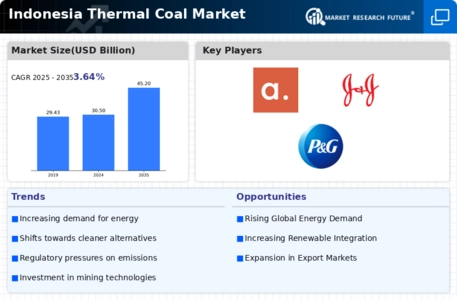Market Analysis
In-depth Analysis of Indonesia Thermal Coal Market Industry Landscape
A complex interaction of factors affects the Indonesia thermal coal market. Domestic and global variables impact supply and demand in this market. One of the world's largest thermal coal exporters is Indonesia. Domestic and export power generation drives thermal coal demand in Indonesia.
Thermal coal output is stable in Indonesia because to its huge coal deposits, efficient mining, and well-established infrastructure. Indonesia's archipelago presents both opportunities and obstacles for coal transport from mines to ports. Logistics and transportation networks must work well to get coal from production sites to end-users, and disruptions can affect market dynamics.
Global influences also affect Indonesia's thermal coal market. International coal pricing, geopolitics, and energy policy of key importing countries can cause market instability. The market also responds to global energy trends like renewable energy and environmental sustainability. These factors can affect thermal coal demand and market participants' strategies.
Indonesia thermal coal market dynamics depend on government policies and regulations. Environmental concerns have increased coal mining attention, including restrictions to minimize environmental damage. Energy security, domestic consumption, and export limitations also affect thermal coal production and commerce. Market participants must manage these regulations to operate sustainably.
Indonesia's thermal coal market is competitive with many domestic and international companies. Production costs, coal quality, and supply chain efficiency affect industry competitiveness. To compete in the changing market, producers must innovate and optimize.
The Indonesia thermal coal market has difficulties and opportunities from the worldwide transition to cleaner energy. Environmental concerns and the push for renewable energy may reduce coal use, although countries with expanding energy demands may still need it. Market actors may negotiate the changing situation by diversifying energy sources, improving clean coal technology, and exploring new export markets.















Leave a Comment